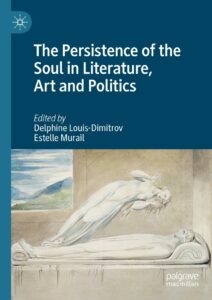
The Persistence of the Soul in Literature, Art and Politics
Publication | Table des matières | Critiques
Résumé
This book analyses the evolution of literary and artistic representations of the soul, exploring its development through different time periods. The volume combines literary, aesthetic, ethical, and political considerations of the soul in texts and works of art from the seventeenth to the twenty-first centuries, spanning cultures and schools of thought. Drawing on philosophical, religious and psychological theories of the soul, it emphasizes the far-reaching and enduring epistemological function of the concept in literature, art and politics. The authors argue that the concept of the soul has shaped the understanding of human life and persistently irrigated cultural productions. They show how the concept of soul was explored and redefined by writers and artists, remaining relevant even as it became removed from its ancient or Christian origins.
Table des matières
Critiques
- “This important volume from an authoritative international team of authors sheds significant new light on the comparative development of post-war Conservatism in the western world.”
– Stuart Ball, Professor Emeritus, University of Leicester, UK - “The rich essays collected in this illuminating volume show that the rise of right-wing politics in the United Kingdom, the United States, and France since the 1970s was a remarkably transnational phenomenon. As they attacked social democracy and cultural pluralism, right-wing movements borrowed ideas, visions, vocabularies, and tactics from each other, adapting them to their own national idioms and using advances in one country to win advances elsewhere. Anyone interested in confronting the problems that have proliferated in the wake the right’s reconfiguration of politics – surging inequality, belligerent ethno-nationalism, worker disempowerment and insecurity, and lost faith in the capacity for democratic self-government – has much to learn about the origins of these problems from this important book.”
– Joseph A. McCartin, Georgetown University, USA, author of Collision Course
